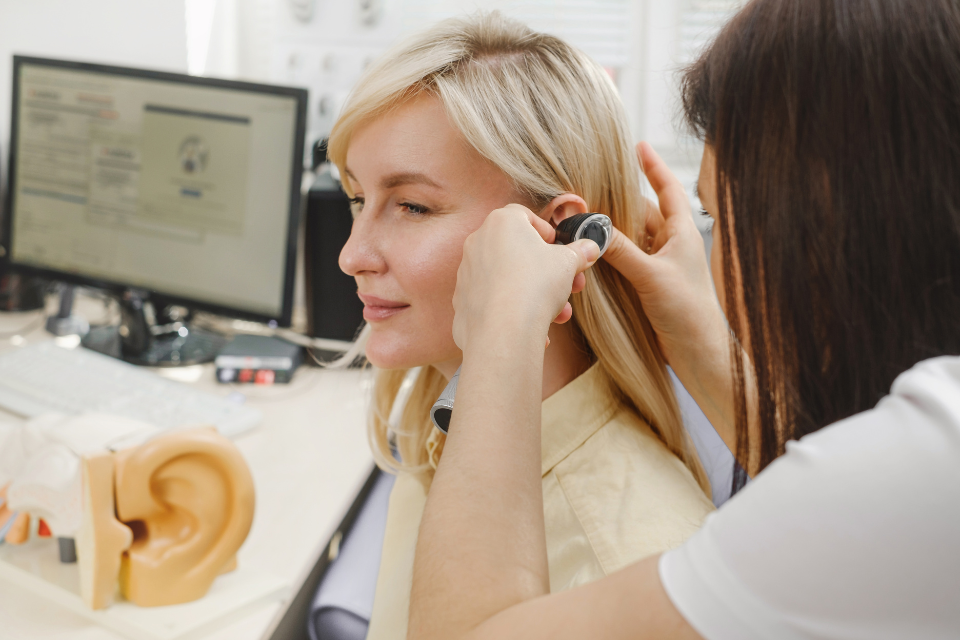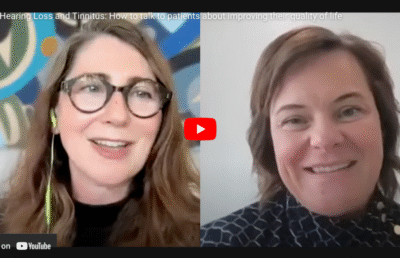According to the National Institute on Deafness and Other Communication Disorders, approximately 15% of American adults, or 37.5 million people, report some trouble hearing.
Recognizing the widespread prevalence of this condition underscores the importance of finding effective ways to adapt and thrive as hearing loss can be a challenging adjustment, affecting various aspects of daily life.
However, many effective strategies can support a happy and healthy lifestyle despite this change. If you are just now experiencing hearing loss or have been struggling with hearing loss for a while, here are some strategies that can help you improve your hearing and quality of life.
Strategies for Adapting to Hearing Loss
Consult an Audiologist to Evaluate Your Hearing Health
When you first begin to notice hearing loss, it is important to consult an audiologist as soon as possible.
We understand that acknowledging hearing loss can be challenging. Many people hesitate to confront these changes, but seeking the support from an expert audiologist is the best way to minimize the impact of hearing loss on your life and prevent the worsening of the condition.
Failure to address hearing loss can have significant consequences, including cognitive decline, depression, social isolation, relationship difficulties, and potential risks to personal and physical safety.
An audiologist can properly diagnose hearing loss and work with you to find the most effective and appropriate solution. If you are nervous about your hearing evaluation, we recommend that you bring a loved one with you. Not only can they offer comfort and support, they can serve as a second set of ears, helping you process the information you receive.
Consider Hearing and Assistive Devices
Assistive devices can play a crucial role in enhancing your life and hearing ability.
People often assume that hearing aids are the only available options but the truth is, there are many hearing assistive devices that can be used to improve your hearing experience.
Consulting an audiologist is the best way for determining the right devices for your needs. They can recommend hearing devices and ensure that they are properly tuned and adjusted for your specific condition.
Hearing loss is life-altering, but modern hearing devices are remarkably discreet and can go a long way to improving hearing experience and quality of life.
New Habits to Help Create a Better Hearing Environment
Creating a conducive hearing environment can significantly improve your comfort and ability to communicate.
One of the most important ways to do this is to sit facing people during conversations, reading their lips, and observing facial expressions, as these visual cues can assist you in understanding.
When meeting people for dinner, if possible, request a table against a wall or a booth to improve hearing and conversation for all guests.
You may have to ask people to speak slower and a little louder, ensuring their speech remains clear without shouting.
Ensure good lighting to enhance the visibility of facial expressions and lip movements. Whenever possible, minimize background noise to reduce distractions and improve your focus on the conversation at hand.
Making these minor adjustments whenever possible can help you create an environment supporting better communication and interaction and prevent frustrations.
Seek Emotional Support
Adjusting to hearing loss can have a significant emotional impact.
It’s common to experience feelings of frustration, isolation, and even depression.
A study published in 2014, tracked over 18,000 adults over the age of 18 and found that the prevalence of moderate to severe depression was 11.4% for participants who reported hearing impairments compared to just 4.9% in those with excellent hearing.
These experiences are not uncommon and it is important to remember that if you are struggling emotionally in adapting to hearing loss, you are not alone.
Acknowledging these feelings and seeking professional support if needed is crucial. Don’t hesitate to reach out to counselors or support groups to help process and manage your emotions to avoid feelings of depression and isolation.
Adapt to Hearing Loss with the Support of Chicago Hearing Services
Adapting to hearing loss is a journey that requires patience, support, and the right resources.
Chicago Hearing Services is dedicated to helping people navigate this transition. With expert audiologists and a range of hearing devices, we offer comprehensive support to improve your hearing and enhance your quality of life.
Hearing loss does not define you. It’s a change, not a limitation. You can live a fulfilling life with hearing loss by understanding your condition, embracing communication strategies, and building a solid support system. Remember, you are not alone, and countless resources and support are available to help you on your journey.
Take the first step towards improving your hearing health. Contact Chicago Hearing Services today for a comprehensive evaluation and personalized support.





